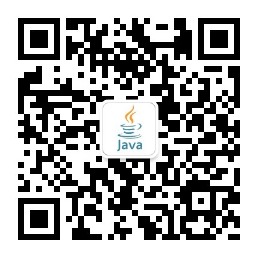首页 > 极客资料 博客日记
【Azure Policy】添加策略用于审计Azure 网络安全组(NSG)规则 -- 只能特定的IP地址允许3389/22端口访问
2024-08-29 21:30:03极客资料围观24次
问题描述
对Azure上的虚拟机资源,需要进行安全管理。只有指定的IP地址才能够通过RDP/SSH远程到虚拟机上, 有如下几点考虑:
1) 使用Azure Policy服务,扫描订阅中全部的网络安全组(NSG: Network Security Group) 资源
2) 判断入站规则,判断是否是3389, 22端口
3) 判断源地址是否是被允许的IP
4) 对不满足条件的 NSG规则进行审计。提示不合规( Non-compliant )

需要满足以上要求的规则,如何来编写呢?
问题解答
使用Azure Policy可以完成对Azure资源的集中管制,以满足合规需求。为满足以上需求:
第一步:检查NSG资源,查看Inbound , port, source 值对应的属性名
在NSG的Overview页面,点击右上角的“JSON View”链接,查看资源的JSON内容,其中securityRules的内容为:
{ "name": "RDP", "id": "/subscriptions/x-x-x-x/resourceGroups/xxxx/providers/Microsoft.Network/networkSecurityGroups/xxxx-xxx/securityRules/RDP", "etag": "W/\"xxxxxxx\"", "type": "Microsoft.Network/networkSecurityGroups/securityRules", "properties": { "provisioningState": "Succeeded", "protocol": "TCP", "sourcePortRange": "*", "destinationPortRange": "3389", "sourceAddressPrefix": "167.220.0.0/16", "destinationAddressPrefix": "*", "access": "Allow", "priority": 300, "direction": "Inbound", "sourcePortRanges": [], "destinationPortRanges": [], "sourceAddressPrefixes": [], "destinationAddressPrefixes": [] } }
其中:
- 资源类型为 type = Microsoft.Network/networkSecurityGroups/securityRules
- inbound的属性名为 direction
- 3389端口的属性名为destinationPortRange
- 而IP地址属性名为sourceAddressPrefix
它们,就是组成Policy Rule的内容
第二步:编写 Policy Rule
Policy的总体框架是:
{ "mode": "All", "policyRule": { "if": { // 需要进行审计的条件 //1: 资源的类型是 Microsoft.Network/networkSecurityGroups/securityRules //2: 入站规则 Inbound //3: 端口是3389 或 22 //4: 如果不在允许的IP地址列表里,则需要审计 }, "then": { "effect": "audit" } }, "parameters": { //输入参数,本例中是允许的IP地址列表 } }
第一个条件:扫描资源的类型为网络安全组的安全规则
转换为Policy语句:
{ "field": "type", "equals": "Microsoft.Network/networkSecurityGroups/securityRules" }
第二个条件:判断规则的方向为入站方向
"direction": "Inbound"
转换为Policy语句:
{ "field": "Microsoft.Network/networkSecurityGroups/securityRules/direction", "equals": "Inbound" }
第三个条件:判断端口为3389 或 22
"destinationPortRange": "3389" 或 "destinationPortRange": "22"
转换为Policy语句:
{ "anyOf": [ { "field": "Microsoft.Network/networkSecurityGroups/securityRules/destinationPortRange", "equals": "22" }, { "field": "Microsoft.Network/networkSecurityGroups/securityRules/destinationPortRange", "equals": "3389" } ] }
第四个条件:判断IP地址,是否不在允许的列表中
"sourceAddressPrefix": "167.220.0.0/16"
转换为Policy语句:
{ "field": "Microsoft.Network/networkSecurityGroups/securityRules/sourceAddressPrefix", "notIn": "[parameters('allowedIPs')]" }
第三步:准备参数(允许的IP地址作为输入参数)
因为被允许的IP地址应该是多个,所以准备为一个Array对象, 参数名称为:allowedIPs。
结构如下:
"parameters": { "allowedIPs": { "type": "Array", "metadata": { "displayName": "Allowed IPs", "description": "The list of allowed IPs for resources." }, "defaultValue": [ "192.168.1.1","x.x.x.x" ] } }
完整的Policy示例:
{ "mode": "All", "policyRule": { "if": { "allOf": [ { "field": "type", "equals": "Microsoft.Network/networkSecurityGroups/securityRules" }, { "field": "Microsoft.Network/networkSecurityGroups/securityRules/direction", "equals": "Inbound" }, { "anyOf": [ { "field": "Microsoft.Network/networkSecurityGroups/securityRules/destinationPortRange", "equals": "22" }, { "field": "Microsoft.Network/networkSecurityGroups/securityRules/destinationPortRange", "equals": "3389" } ] }, { "field": "Microsoft.Network/networkSecurityGroups/securityRules/sourceAddressPrefix", "notIn": "[parameters('allowedIPs')]" } ] }, "then": { "effect": "audit" } }, "parameters": { "allowedIPs": { "type": "Array", "metadata": { "displayName": "Allowed IPs", "description": "The list of allowed IPs for resources." }, "defaultValue": [ "192.168.1.1","x.x.x.x" ] } } }
最终效果:

参考资料
Using arrays in conditions: https://learn.microsoft.com/en-us/azure/governance/policy/how-to/author-policies-for-arrays#using-arrays-in-conditions
deny-nsg-inbound-allow-all: https://github.com/Azure/azure-policy/blob/master/samples/Network/deny-nsg-inbound-allow-all/azurepolicy.json
Azure Policy definitions audit effect: https://learn.microsoft.com/en-us/azure/governance/policy/concepts/effect-audit
标签:
相关文章
最新发布
- Nuxt.js 应用中的 prerender:routes 事件钩子详解
- 【问题解决】Tomcat由低于8版本升级到高版本使用Tomcat自带连接池报错无法找到表空间的问题
- 【FAQ】HarmonyOS SDK 闭源开放能力 —Vision Kit
- 六、Spring Boot集成Spring Security之前后分离认证流程最佳方案
- 《JVM第7课》堆区
- .NET 8 高性能跨平台图像处理库 ImageSharp
- 还在为慢速数据传输苦恼?Linux 零拷贝技术来帮你!
- 刚毕业,去做边缘业务,还有救吗?
- 如何避免 HttpClient 丢失请求头:通过 HttpRequestMessage 解决并优化
- 让性能提升56%的Vue3.5响应式重构之“版本计数”

